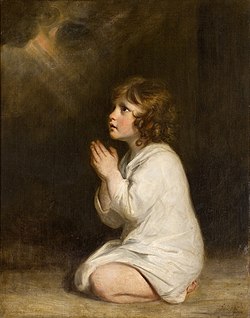Nazirite

A Nazirite (from the Hebrew nāzîr, נָזִיר)[1] is someone who takes a vow before God to be set apart as holy, either for a specific period or for life.[2] The term nāzîr comes from the verb nāzar (נָזַר), meaning “to separate,” “to dedicate,” or “to consecrate.”[3][4] Those who took the Nazirite vow were required to follow three strict prohibitions: They could not drink wine or any fermented drink, they were not to cut their hair, and they were forbidden from going near a dead body. Notable Nazirites in the Bible include Samson, Samuel, and John the Baptist.
The Nazirite Law
In the Old Testament, anyone who desired could take the Nazirite vow,[5] but they were required to strictly observe three key prohibitions. The regulations for Nazirites are outlined in the book of Numbers.
Prohibited Regulations

- Nazirites were strictly forbidden from consuming wine, strong drink, and all products of the grapevine—this included grape juice, fresh grapes, raisins, grape seeds, and grape skins.[6][7] The prohibition against drinking wine and strong drink was also a regulation applied to priests in the Old Testament.[8]
- They were not to cut their hair. During the period of their vow, the Nazirite was set apart as holy to God[9] and was not to cut their hair.[10] Their hair was to grow freely. Samson, a judge of Israel and a Nazirite, believed that his great strength came from his faithfulness to this rule.[11]
- They were not to go near a dead body. In the Old Testament, human corpses were considered ceremonially unclean.[12] To remain in a holy state, Nazirites had to avoid any contact with the dead. This prohibition applied even in the case of close family members such as parents or siblings.[13]
If a Nazirite Violated the Vow
If a Nazirite became defiled by coming into contact with a dead body, the period of their previous vow became invalid. They were required to undergo an 8-day purification ritual and then take the vow again from the beginning. On the seventh day after becoming defiled, the Nazirite had to shave their head. On the eighth day, they were to offer a sin offering and a burnt offering, specifically, two young pigeons or two doves. After that, they had to bring a one-year-old male lamb as a guilt offering.[14]
At the End of the Nazirite Vow
When the period of a Nazirite’s vow was completed, the person would go to the entrance of the Tabernacle and prepare offerings to present to God. These offerings included: A one-year-old male lamb, a one-year-old female lamb, fine flour, cakes mixed with oil, and other prescribed items. The priest would then offer these sacrifices to God on behalf of the Nazirite. Afterward, the Nazirite would shave their hair at the entrance of the Tabernacle and place it into the fire under the fellowship offering. Once all the ceremonies were completed, the Nazirite returned to ordinary daily life.[15]
Major Nazirites in the Bible
The most prominent Nazirites mentioned in the Bible are Samson, Samuel, and John the Baptist.[16][17] Each of them played a vital role in the history of Israel’s salvation. Samson was set apart as a Nazirite from the womb. He became a judge of Israel and delivered the nation from its enemy, the Philistines.[18] Samuel became a lifelong Nazirite through a vow made by his mother after he was weaned.[19] He is the only person in the Old Testament to serve simultaneously as a judge, prophet, and priest.[20] He also anointed the kings of Israel at God’s command.[21][22] John the Baptist was the one who prepared the way for Jesus Christ, God who came in the flesh.[23]
See also
References
- ↑ Strong's Hebrew: 5139. נָזִיר, Bible Hub
- ↑ Nazirite, Britannica
- ↑ Strong's Hebrew: 5144. נָזַר, Bible Hub
- ↑ Judges 13 New English Translation, Bible Gateway
- ↑ Numbers 6:1–2
- ↑ Numbers 6:3–4
- ↑ G. Johannes Botterweck, Heinz-Josef Fabry, Helmer Ringgren, Theological Dictionary of the Old Testament, vol. XI, Eerdmans Publishing Company, 1974, pg.211
- ↑ Leviticus 10:8–10
- ↑ Numbers 6:8
- ↑ Numbers 6:5
- ↑ Judges 16:17
- ↑ Numbers 19:11
- ↑ Numbers 6:6–8
- ↑ Numbers 6:9–12
- ↑ Numbers 6:13–21.
- ↑ Who Were the Nazarites?, Hope Bolinger, Christianity.com, January 25, 2024
- ↑ Luke 1:13–16
- ↑ Judges 13:5
- ↑ 1 Samuel 1:24–28
- ↑ Samuel, Britannica
- ↑ 1 Samuel 10:1
- ↑ 1 Samuel 16:12–13
- ↑ Luke 3:16





